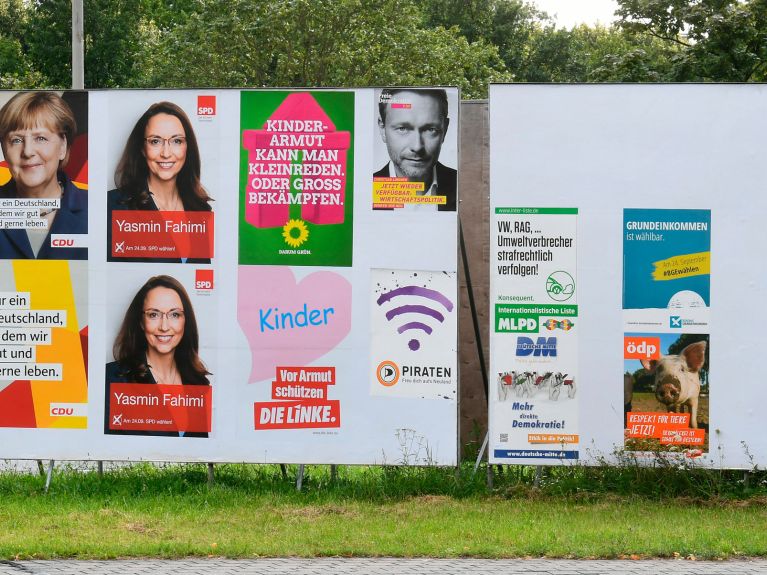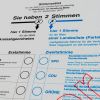Stability instead of division
The political scientist Jürgen Falter talks about the Bundestag election campaign, the German party system and the mood in the regions.

Professor Falter, American and British media have recently described the German election campaign as remarkably unagitated. Is that something typically German?
No, we’ve also had election campaigns that have been much more vehement. How bitterly issues are disputed has not least to do with the candidates and their temperaments. Chancellor Helmut Schmidt and his challenger Franz Josef Strauß, for example, were more spirited than Angela Merkel and Martin Schulz. Moreover, no one’s expecting a dramatic head-to-head race between the parties of the two top candidates. Then too there’s not such a deep division in German society at present as there is, for instance, in the United States. Germans are rather satisfied with the economic situation and feel comparatively safe in the social market economy system. This – of course along with the terrible experience of Nazism - has repeatedly worked against the success of populist campaigns and parties.

What regional differences influence voter behaviour in Germany?
These are still above all the differences between Southern and Northern Germans. For example, Southern Germans are on average happier with their lives and their economic situation and tend to vote for conservative parties. The difference between East and West Germans, on the other hand, has become much slighter. Especially because young East Germans, who have grown up in reunified Germany, are no longer influenced by the GDR.
In Germany there are no major social divisions that could lead to a fragmentation of the party landscape.
What are the peculiarities of the German party system?
Compared with other countries, the German party system is still surprisingly compact, in spite of all the differentiations of the last few years. All the more so for a country with a proportional voting system in which the parties receive seats in the parliament in proportion to the number of votes. At present there are no major social divisions in Germany that could lead to a fragmentation of the party landscape. A major role is also played by the five per cent hurdle, which allows only parties that gain at least that percent of the vote to enter the Bundestag.
You’re considered one of the most distinguished German party researchers and experts on voting. How to you reach your assessments?
On the one hand, of course, through intensive analysis and research. I benefit from my decades-long scientific study of voting and parties and my many scientific publications and lectures. Through my work I’ve met most of the country’s top politicians. In this way I’ve been able to gain authentic impression of political practice without being a politician myself. To keep up with current developments, I read all across the German newspaper landscape. And I always look for the opportunity of talking to citizens so as better to assess the mood of the country.
